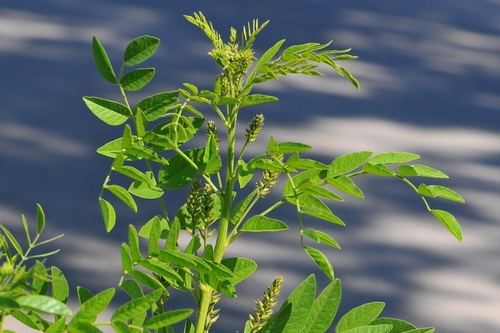February 18, 2013
Japanese Researchers Succeed in Sprouting Licorice in Mongolian Desert with No Irrigation
Keywords: Ecosystems / Biodiversity University / Research institute
A research group led by Professor Noriyuki Yasufuku of the Geotechnical Engineering Laboratory at Kyushu University, Japan, announced on June 20, 2012, that they had succeeded in their experiment to grow licorice plants in a desert in Mongolia without needing irrigation. The group has been conducting research on preventing desertification using licorice plants, which is often prescribed in Chinese medicine.
It has been pointed out that the excessive picking of licorice plants, which is often found growing in arid lands, can be a factor in causing desertification. Motivated by this fact, they began cultivating licorice using prepared soil and no irrigation in a Mongolian field starting in September 2011. They reported that germination from seeds and roots could be seen under certain conditions.
They have been conducting this field research since 2010, with the cooperation of the Mongolian Academy of Sciences, in order to study the characteristics of soil, weather conditions, and underground water resources in the area where licorice grows wild. The study is part of the research activity jointly conducted by the Research Institute for East Asia Environments between Kyushu University, Kyushu University, and Genkai Town in Saga Prefecture, Kyushu. By continuing with more demonstration experiments, they expect to establish technologies for stable harvesting of herbal plants, such as licorice, in desert areas with the aim of greening those areas.
Related JFS article:
Making the Impossible Possible -- "Miracle Apples" and Natural Cultivation
Plant Native Trees, Recreate Forests to Protect the Future: Respected Ecosystem Scientist Akira Miyawaki
Japanese Farmer-Philosopher Masanobu Fukuoka: Natural Farming Greening the Deserts
Related
"JFS Newsletter"
- 'What Are the Roles of Zoos Today?' - Interview with Director of the Popular Asahiyama Zoo
- Nishiawakura's Initiative for 100% Energy Self-Sufficiency, and a Municipal ICO Scheme
- 15-Year Integrated Forest Environment Education in Shimokawa, Hokkaido to Support Sustainable Forest Management
- Fifth Contest to Award Excellent Environmental and Social Practices by Junior High, High School Students
- Increase Revenues without Increasing Catches -- How the Sustainable Sakura Shrimp Fishery in Suruga Bay Does It



